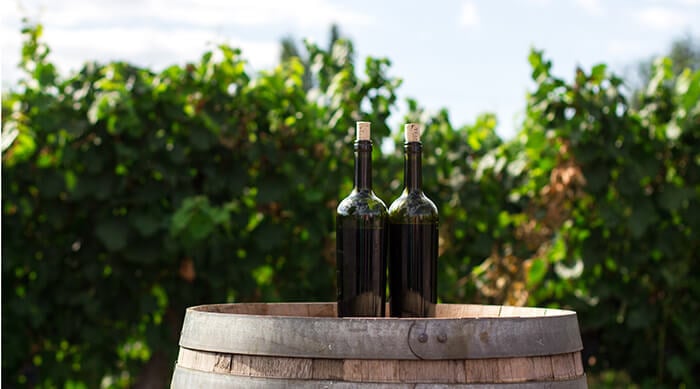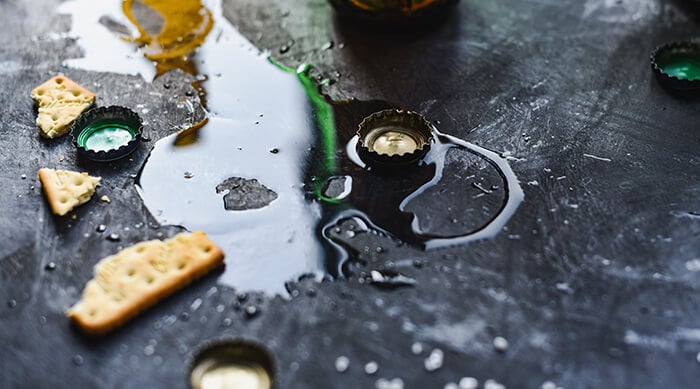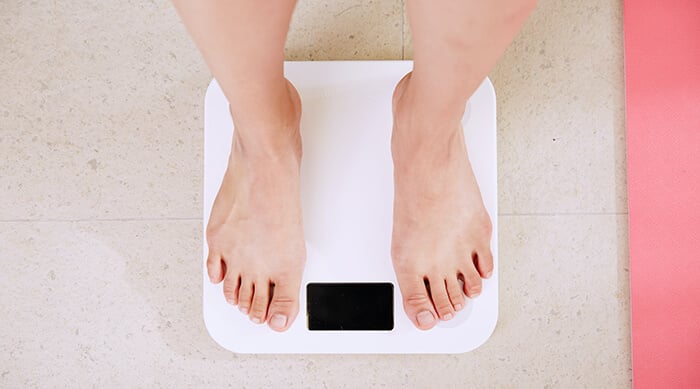There’s quite a bit of talk out there about the health benefits of red wine, particularly when it comes to heart health.
Wine can be good for you in moderate amounts. Red wine can give you an antioxidant boost, reduce your risk of heart disease, certain types of cancer, and diabetes, and even help you live longer.
But those benefits disappear when moderate drinking turns into drinking too much.
None of this means you should start drinking alcohol if you don’t already indulge from time to time. In fact, the benefits of not drinking alcohol at all outweigh the benefits of typical wine consumption at any level.
Is wine good for you in the long term? Wine can be heart healthy long term when enjoyed in moderation. It depends on how much you’re drinking, rather than what you’re drinking.
Table of Contents
What are the health benefits of wine?
1. Wine Can Improve Heart Health
2. A Moderate Amount of Wine Can Help Fight Cancer
What are the health benefits of wine?
The health benefits of wine include improved heart health, disease-fighting antioxidants, and improved longevity.
Is wine the healthiest alcohol? While wine has a reputation as the healthiest alcohol, there is currently no evidence to suggest it’s any better for you than moderate amounts of other types of alcohol, whether beer or spirits.
Any benefits associated with wine only apply to moderate drinking. That means one drink a day for women and 2 drinks a day for men under 65. Men over 65 should cut back to one drink per day.
Standard drink amounts:
- 5 ounces of wine
- 12 ounces of beer
- 1.5 ounces of 80-proof distilled spirits
Anything beyond that becomes drinking to excess, and increases your risk of a variety of health concerns.
1. Wine Can Improve Heart Health
Moderate red wine consumption has been linked to improved heart health, a lower risk of blood clots, and increased high-density lipoprotein (HDL) cholesterol levels. HDL cholesterol is the good kind of cholesterol that reduces your risk of heart attacks and stroke.
Studies show that antioxidants and polyphenols in wine like resveratrol and catechins reduce oxidative stress, slowing the body's production of free radicals. Too much oxidative stress dramatically increases your risk of heart failure.
On the other hand, it’s possible the effects of resveratrol have been a little overstated, particularly as it’s not well-absorbed by the body.
The American Heart Association has studied something called the French paradox since the ‘80s. This is the idea that the French have a reduced risk of heart disease despite a diet relatively high in saturated fats found in butter and cheese.
We should note that the French Paradox is somewhat controversial. Skeptics point out that pinning health benefits on moderate alcohol consumption misses the big picture. The French diet includes more fresh produce and fewer sweetened drinks, and French people walk more when compared to Americans.
These factors lead to reduced risk factors for cardiovascular disease, with or without wine.
Drinking less will always be better for your cardiovascular health. While moderate amounts can help, too much alcohol can have the opposite effect, raising the risk of heart disease and hypertension.
2. A Moderate Amount of Wine Can Help Fight Cancer
The benefits of red wine include cancer-fighting properties. One study showed that resveratrol helps both reverse cancer drug resistance and make cancer cells more sensitive to traditional cancer treatments.
This may be thanks again to red wine’s potential to reduce oxidative stress in the body. Oxidative stress has been linked to tumor growth and cancer cell invasion in areas of the body away from the original site of the cancer.
However, wine’s link to reduced cancer risk only applies to moderate drinkers. Once alcohol intake increases, the opposite is true. Women increase their risk for breast cancer with heavy drinking. Both men and women increase their risk of colorectal, liver, and esophageal cancers when they drink too much.
3. Improved Diabetes Outcomes
Moderate wine consumption may help those with diabetes get more control over their condition. Studies have shownthat wine and limited alcoholic beverages can increase insulin sensitivity.
That may make it easier for those with type 2 diabetes to manage their glucose levels, as too much glucose can wreak havoc on the body.
The opposite is true, however, of binge drinking. Excessive amounts of alcohol actually increase the risk of type 2 diabetes. It can also become difficult for your body to decide whether it should metabolize your body’s naturally occurring blood sugar or the alcohol you’ve just consumed.
This can lead to hypoglycemia if you’re not careful.
4. Anti-Aging Effects
The anti-inflammatory effects of polyphenols in red wine also work to fight back against the effects of aging.
As we age, we’re more likely to develop dementia and symptoms of cognitive decline. Light to moderate wine consumption has been linked to a lower risk of dementia and improved memory over time.
Wine’s anti-inflammatory effects may also reduce the risk of age-related cognitive conditions. These include Alzheimer’s disease and Parkinson’s, although more research is needed to understand how this happens.
Some studies also link wine with longevity. But the concern here is whether we’re placing too much faith in the wine over other healthy habits shared by regular wine drinkers.
That includes:
- Healthy eating habits (e.g., the Mediterranean diet)
- Regular exercise
- Stress reduction
- Healthy sleep patterns
All of those are also important when fighting against not only aging, but inflammation and oxidative stress in the body.
Read Next: 12 Non-Alcoholic Wine Substitutes for Cooking With Wine
Resveratrol, the Super Ingredient
Resveratrol is the antioxidant in red wine that gets the most attention. It helps fight cancer, reduce oxidative stress, and improve cholesterol levels. Researchers are still working to understand resveratrol fully, but it seems to be packed with health benefits.
Which wine is the healthiest? Red wines like Pinot Noir or Syrah are considered the healthiest wines thanks to their high resveratrol content. Rosé wines also contain resveratrol, but in smaller amounts than red wines.
While wine is relatively high in resveratrol, we should point out that you would need to drink 500 liters of red wine to make up 1 gram of this powerful antioxidant. So, if you’re drinking red wine for the health benefits, it might be time to reconsider — not drinking at all is much healthier.
If you’re cutting back on alcohol, there’s still a way to stick to those limits and enjoy a glass of wine from time to time.
What is the best wine for you? We think the best wine is Surely’s non-alcoholic wine. Surely wines offer the taste of wine with none of the concerns that come with alcohol.
Non-alcoholic red wine allows wine drinkers to enjoy the health benefits without the adverse side effects of alcohol. It’s real wine — without the alcohol.
Non-Alcoholic Sparkling Rosé
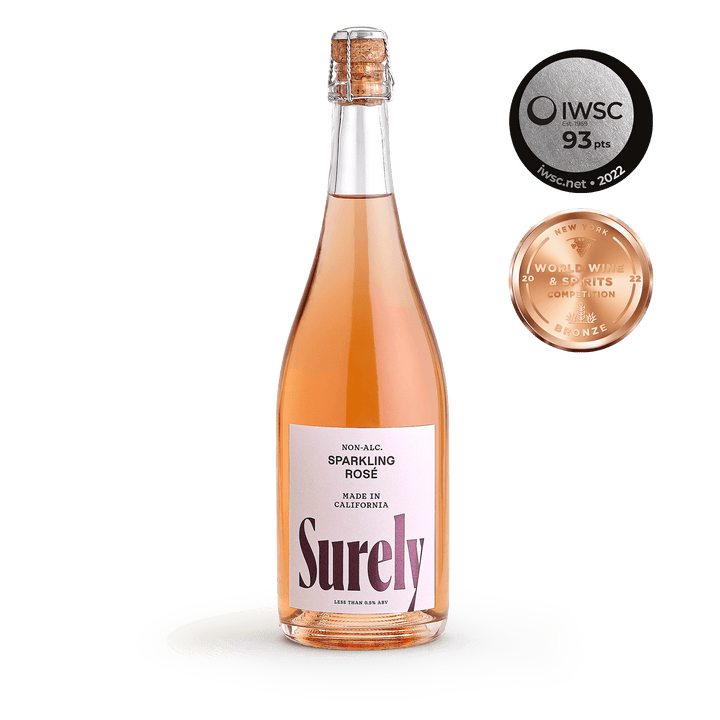
$24.99
Award-winning non-alcoholic California sparkling rosé with crisp, light notes of strawberry, peach & raspberry. Rosé all day without the hangover.TASTING NOTES: Flavors of soft strawberry, peach, and raspberry notes are balanced with a light acid for a full finish.FOOD PAIRINGS:… Read More
Precautions
Even moderate consumption comes with some risk, especially if you shouldn’t be consuming any alcoholic drinks at all.
Is it ok to drink wine during pregnancy? It hasn’t been proven safe to drink wine or any alcohol while pregnant or if you want to become pregnant. It’s also not safe to drink alcohol while breastfeeding.
There are additional health risks associated with drinking to keep in mind, even if you’re not expecting.
Liver Disease & Other Conditions
As we’ve mentioned, excess drinking has the opposite effect of all of those health benefits associated with moderate wine drinking.
Too much alcohol can damage your liver cells, cause liver scarring or cirrhosis, and lead to liver disease. Heavy drinking can also lead to:
- Increased cancer risk
- Heart problems
- Increased stroke risk
- Pancreatitis
- High blood pressure
- Digestive problems
Weight Gain
Excessive alcohol use doesn’t just cause a nasty hangover in the morning; it can lead to weight gain over time, too.
Limited white wine consumption and wine consumption overall doesn’t necessarily mean you’ll immediately start putting on weight, especially if you’re following balanced dietary guidelines. It’s when that occasional glass of champagnebecomes a regular habit that you can lose sight of those health goals.
Regular drinking means you’re adding empty calories into your diet. If you’re prone to overeating or turning to junk food after drinking, that only increases your risk of gaining weight over time.
Beer and spirits are the worst offenders for obesity risk in heavy drinkers. The good news is, weight loss is an added benefit when you stop drinking, especially if it’s become a regular habit.
Sleep Problems
Drinking too much can cause problems with your sleep patterns. It may seem like that glass of red wine puts you to bed much faster, but over time, your body may suffer from the lack of restorative sleep after drinking.
Larger amounts of alcohol can keep you from getting to the REM sleep stage of your sleep cycle. REM sleep is essential to overall cognition, including memory.
That’s why it can feel like you’re in a fog the morning after drinking. In a way, you are. Your brain wasn’t given the rest it needs to be at its best the next morning.
A lack of good sleep can also affect your mental health and overall mood. Personal relationships can suffer as a result, on top of the added anxiety of managing your own mental health if you’re not feeling your best.
Alcohol Dependency
It is easy to abuse alcohol if you’re not careful. Drinking to excess can become problematic if you find yourself needing to drink on a daily basis. Alcohol dependency increases your risk of accidents and injury and impacts your daily functioning.
If you need think you need help with alcohol abuse or are suffering from the effects of alcohol abuse, contact these support groups:
Your primary care physician can also connect you with wellness centers or local service providers that will work with your health insurance. If you or a close family member has a history of alcoholism, you may want to avoid alcohol altogether.
Alternatives to Drinking Wine for Health
Is it good to drink wine every day? It’s generally considered safe to drink wine every day if you keep it to no more than a glass or two.
The good news is those polyphenols found in red wine are also easily found elsewhere. You can get a dose of antioxidants from:
- Red grape skins
- Blueberries
- Cranberries
- Dark chocolate
- Cocoa
- Grape juice
- Dietary supplements
- Resveratrol supplements
If you already have high blood pressure or cardiovascular problems, adding alcoholic wine to your diet isn’t necessary.
Thankfully, you can now get both the health benefits of wine and the benefits of not drinking — all from the same bottle.
Try Surely’s non-alcoholic bubbly red for all the benefits of red wine or our classic sauvignon blanc if you prefer white wine.
$22.99
Award-winning alcohol-removed California Sauvignon Blanc. Citrus meets pear and apple to create a crisp, bright, dry sip. TASTING NOTES: This perfectly balanced, dry Sauvignon Blanc is citrus-forward with soft pear and sweet apple notes. FOOD PAIRINGS: The perfect companion to… Read MoreNon-Alcoholic Sauvignon Blanc
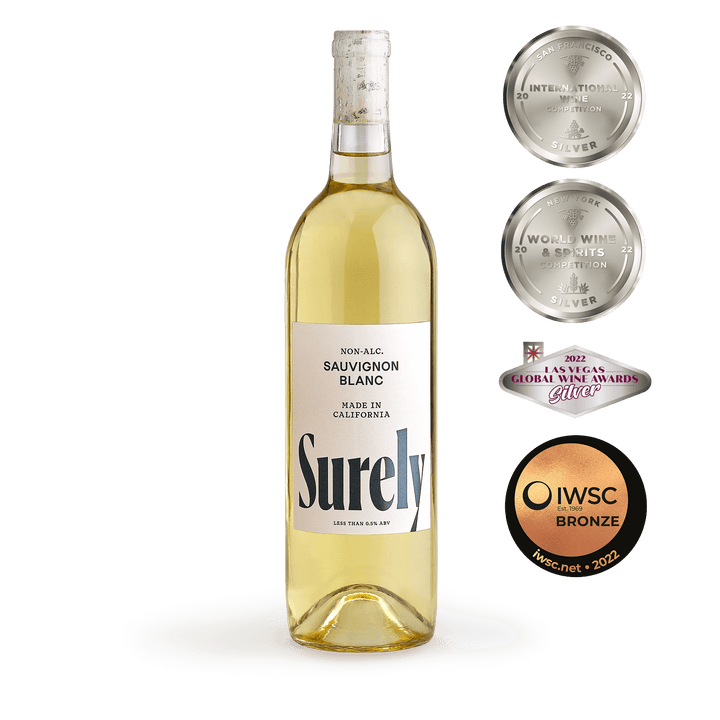
Sources
- Benefits and Risks of Moderate Alcohol Consumption on Cardiovascular Disease: Current Findings and Controversies
- Red Wine Consumption and Cardiovascular Health
- Wine and Cardiovascular Health: A Comprehensive Review
- The French paradox: lessons for other countries
- Lifestyle in France and the United States: An American Perspective
- The Role of Resveratrol in Cancer Therapy
- Oxidative stress, inflammation, and cancer: How are they linked?
- Alcohol’s Effects on Breast Cancer in Women
- Alcohol consumption and cancer risk
- Alcohol and type 2 diabetes. A review
- Risk of dementia and alcohol and wine consumption: a review of recent results
- Resveratrol: How Much Wine Do You Have to Drink to Stay Healthy?1,2,3
- Wine: An Aspiring Agent in Promoting Longevity and Preventing Chronic Diseases
- Alcohol consumption, blood pressure, and the risk of stroke
- Mechanisms of alcoholic pancreatitis
- Alcohol's role in gastrointestinal tract disorders
- Effects of moderate consumption of white wine on weight loss in overweight and obese subjects
- Type of alcoholic beverage and incidence of overweight/obesity in a Mediterranean cohort: the SUN project
- Alcohol consumption and sleep quality: a community-based study

